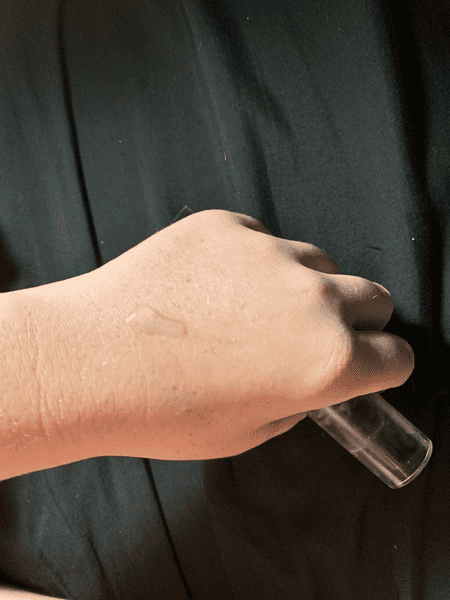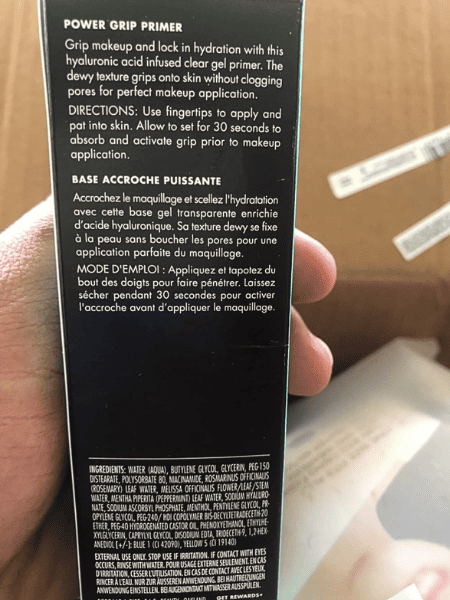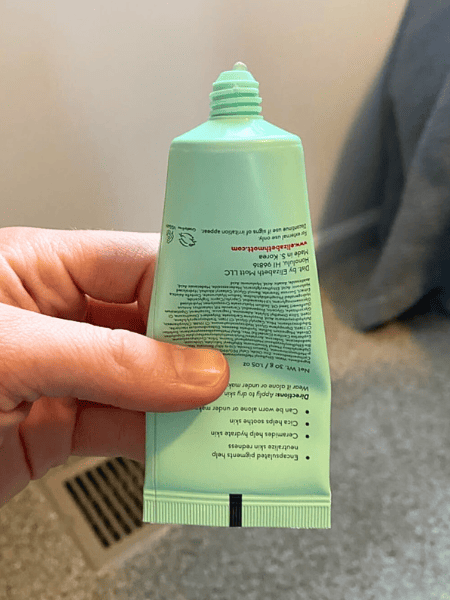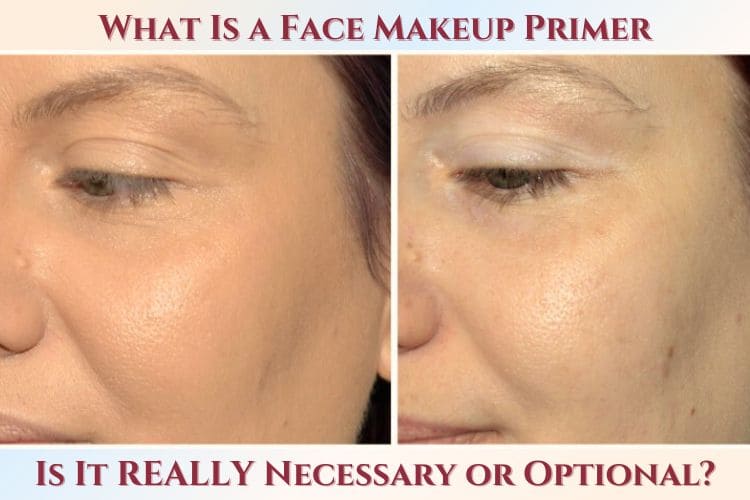Makeup enthusiasts and pros alike seem to be raving about a little product called the face makeup primer. But what exactly is it, and do you really need Primer in your beauty routine? If you’ve ever struggled with foundation that won’t stay, put or makeup that highlights your skin’s every little imperfection, this tiny bottle might just be your new best friend.
Primers are everywhere now, thanks to their promise of flawless, long-lasting makeup. But before you rush to add one to your cart, let’s unpack what a primer actually does and whether it deserves a spot on your vanity. Spoiler: It depends on your skin type, makeup goals, and preferences. Stick with me as we dive into what primers are all about and, most importantly, whether you really need one to achieve your best makeup look.
What Is a Face Makeup Primer?

Let’s start with the basics: A face makeup primer is essentially the bridge between your skincare and makeup routines. Think of it as the glue that holds your makeup in place all day. Primers work to create a smooth, even surface for your foundation and other products. The result? A professional-looking finish that doesn’t budge for hours.
But here’s where things get exciting—primers aren’t a one-size-fits-all product. Depending on your skin type and concerns, you’ll find a variety of primers to suit your needs. Let’s break them down:
variety of primers
- Foundation Primer
This is the most common type and your go-to if you’re looking to elevate your foundation game. It smooths out your skin’s texture, minimizing dry patches or uneven areas, so your foundation glides on effortlessly. Many foundation primers also contain hydrating ingredients, making them a favorite for dry skin days. - Mattifying Primer
If you’re battling shiny T-zones or midday oil slicks, this one’s for you. Mattifying primers are loaded with oil-absorbing ingredients like kaolin clay or silica, which work to control shine and keep your makeup looking fresh. Oily and combination skin types, take note—this is your holy grail. - Illuminating Primer
Is your skin looking a little dull? Illuminating primers can bring back that glow. Infused with light-reflecting particles or moisturizing agents, these primers add radiance to your complexion. Perfect for dry or mature skin, they make your face look lit-from-within—like you’ve been drinking eight glasses of water a day (even if you haven’t). - Color-Correcting Primer
Ever wondered why some primers come in shades like green, peach, or lavender? These are your color-correcting primers, and they work wonders on uneven skin tones. For example, green neutralizes redness (hello, rosacea!), peach brightens dark spots, and lavender tackles dullness. It’s like Photoshop for your face. - Hydrating Primer
If dry skin is your nemesis, a hydrating primer is your superhero. Packed with nourishing ingredients like hyaluronic acid or vitamins, these primers quench thirsty skin while prepping it for makeup. Bonus: Many also double as lightweight moisturizers, perfect for lazy days when you want to skip a step.
How Does a Primer Work?
Now that we know what primers are, let’s talk about how they work their magic. Think of a primer as the backstage crew of a Broadway show—they’re not front and center, but without them, things would fall apart.
At its core, a primer creates a barrier between your skin and makeup. This prevents foundation from sinking into pores, fine lines, or wrinkles, ensuring a smoother application and longer-lasting wear without separation.
Key Ingredients Behind the Primer

The secret sauce of primers lies in their ingredients. Let’s break down the heavy hitters:
- Silicone-Based Compounds
You’ve probably noticed that many primers feel silky to the touch—it is due to ingredients like dimethicone. Silicones fill in uneven areas of your skin, creating that smooth-as-glass surface we all dream of. This also helps your foundation sit perfectly, rather than clinging to imperfections. - Hydrating Agents
For those of us prone to dry patches or flaky skin, primers with glycerin or hyaluronic acid can be helpful. These ingredients lock in moisture, keeping your makeup looking fresh rather than cakey. - Film-Forming Agents
Ever wondered why your makeup stays intact during a long day—or night? Film-forming agents are responsible. They create a light, flexible layer on your skin that locks your makeup in place while allowing your skin to breathe. - Antioxidants
Makeup that’s good for your skin? Yes, please. Ingredients like vitamin C and vitamin E are often added to primers to combat environmental stressors like pollution, while also giving your skin a healthy boost.
Benefits of Using a Face Primer
By now, we’ve established what primers are and how they work. But what makes them a must-have for so many beauty lovers? Let’s see the key benefits of adding a primer to your makeup routine.
1. Minimizes Pores and Fine Lines
Ever noticed how foundation seems to settle into fine lines or make pores look more pronounced? Primers tackle this head-on. By creating a smooth surface, primers help your foundation glide on seamlessly, leaving behind a flawless finish. No need for heavy layering—just a touch of primer can make your skin look airbrushed.
2. Enhances Makeup Longevity
If you’re tired of your makeup disappearing by lunchtime, primer could be your secret weapon. Many primers contain film-forming agents that lock your makeup in place, helping it survive long workdays, date nights, or dance floors. Say goodbye to constant touch-ups and hello to a full-face that stays put.
3. Controls Oil and Shine
For those with oily or combination skin, primers with oil-absorbing properties can be a game-changer. Ingredients like kaolin clay or silica absorb excess oil and keep your T-zone shine-free. The result? A matte finish that holds its ground, even on the hottest days.
4. Provides Skincare Benefits
Modern primers do more than prep your skin for makeup—they double as skincare. Some include SPF for sun protection, while others are infused with antioxidants to fight environmental stressors. Many also feature soothing ingredients, making them perfect for sensitive or irritated skin.
5. Improves Makeup Application
Ever struggled with streaky foundation or uneven blush? A good primer acts as a blending assistant, ensuring your makeup applies smoothly and evenly. It reduces patchiness, making every step of your routine feel like a breeze.
Is a Primer Necessary for Everyone?

This might be the million-dollar question: Is primer an essential step for every makeup routine? The answer isn’t as simple as yes or no—it depends on a mix of factors, from your skin type to the occasion.
Skin Type Matters
Your skin’s unique needs can help determine whether primer is a must-have. If you’re prone to oiliness, a mattifying primer can keep your foundation intact. Dry skin? Hydrating primers can give you a smoother, more radiant base.
What’s Your Desired Finish?
If you love a dewy glow, an illuminating primer can work wonders. Prefer a shine-free finish? Stick with a mattifying option. The key is matching your primer to your makeup goals.
When Is Primer Most Beneficial?
Primer really shines during specific situations:
- Long events like weddings or parties, where you need your makeup to last for hours without budging.
- Hot or humid weather, which can wreak havoc on even the most long-wearing foundation.
Some makeup minimalists might find they can skip primer altogether, especially if their skincare routine already addresses their skin concerns. But others—myself included—swear by it for that polished, photo-ready look.
Expert Insights – According to many professional makeup artists, primers can elevate your makeup game, but they’re not mandatory for everyone. It’s all about experimenting to see what works for your unique skin and routine.
How to Choose the Right Primer for Your Skin Type
Picking the perfect primer can feel overwhelming, given all the options out there. But don’t worry—I’ve got you covered with a simple guide to finding your match.
Step 1: Identify Your Skin Concerns
Start by understanding what your skin needs:
- Oily Skin: Look for mattifying primers with ingredients like silica or clay to control shine.
- Dry Skin: Opt for hydrating formulas with hyaluronic acid or glycerin to keep your skin plump and smooth.
- Combination Skin: Balance is key here—choose a primer that tackles oiliness without drying out your skin.
Step 2: Patch Test Before Committing
Always test new primers before adding them to your routine. Sampling products at beauty stores or buying travel sizes is a great way to see how a primer performs on your skin. Check the ingredient list for potential irritants if you have sensitive skin.
Step 3: Trust Expert Recommendations
Not sure where to start? Beauty experts and influencers often share their tried-and-true favorites for different skin types. Take their advice to heart—but remember, what works for them might not work for you.
Application Tips for Using Face Primers Effectively
Once you’ve found the right primer, application is key to getting the best results.
How to Apply
- Use clean fingers, a brush, or a sponge to apply a thin layer of primer.
- Focus on areas that need the most help—like your T-zone or areas with visible pores.
- Let the primer sit for a minute before applying your foundation to ensure it sets properly.
Layering Skincare and Primer
Apply your primer after your skincare routine but before your makeup. This ensures your moisturizer and serums have time to absorb without interfering with your primer.
Mistakes to Avoid
- Don’t overapply—less is more when it comes to primer.
- Avoid mixing water-based and silicone-based products, as they can cause pilling.
- Is Micellar Water Safe for Everyday Use? [6 Pros & Cons]
Wrapping Up
Face Makeup Primers may not be the star of your makeup routine, but they play a critical supporting role. From extending the wear of your foundation to enhancing your skin’s texture, they’re the unsung heroes of beauty. If you’re unsure whether primer is right for you, start small—try samples, experiment with different types, and see how your makeup transforms.
At the end of the day, makeup is all about self-expression and confidence. And if a little bottle of primer helps you feel your best, why not give it a go?

